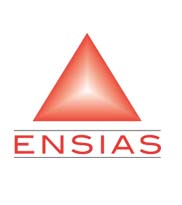- Accueil
-
L'Ecole
-
FORMATIONS
-
FORMATION INGENIEUR
-
Nouvelles filières offertes
- Ingénierie Intelligence Artificielle (2IA)
- Smart Supply Chain & Logistics (2SCL)
- Business Intelligence & Analytics (BI&A)
- Cybersécurité, Cloud et Informatique Mobile (CSCC)
- Data and Software Sciences (D2S)
- Génie de la Data (GD)
- Génie Logiciel (GL)
- Ingénierie Digitale pour la Finance (IDF)
- Smart System Engineering (SSE)
- REGLEMENT DES ETUDES DE L’ENSIAS CYCLE INGENIEUR
-
Nouvelles filières offertes
-
FORMATION INGENIEUR
- FORMATION CONTINUE
-
Recherche
- INTERNATIONAL
- ENTREPRISES
- VIE ESTUDIANTINE
- BIBLIOTHEQUE
LES DERNIÈRES INFORMATIONS
A decision tree-based approach for cardiovascular dysautonomias diagnosis: A case study
| Titre | A decision tree-based approach for cardiovascular dysautonomias diagnosis: A case study |
| Publication Type | Conference Paper |
| Year of Publication | 2015 |
| Authors | Kadi, I, Idri, A |
| Conference Name | Proceedings - 2015 IEEE Symposium Series on Computational Intelligence, SSCI 2015 |
| Abstract | Terms as knowledge Discovery from Databases (KDD), Data Mining (DM) and Machine Learning (ML), gain from day to day, an increasing significance in medical data analysis. They permit the identification, evaluation, and quantification of some less visible, intuitively unpredictable, by using generally large sets of data. Researchers have long been concerned with applying DM tools to improve data analysis on large data sets. DM has been increasingly used in medicine, particularly in cardiology. In fact, data mining applications can greatly benefits all parts involved in cardiology. Autonomic nervous system (ANS) is the part of the nervous system that is involved in homeostasis of the whole body functions. A malfunction in this system can lead to a cardiovascular dysautonomias. Thereby, a set of dynamic tests are adopted in ANS units to diagnose and treat patients with cardiovascular dysautonomias. In this paper, a case study was performed in order to construct a cardiovascular dysautonomias prediction system using data mining techniques and a dataset collected from an ANS unit of the Moroccan university hospital Avicenne. The prediction system is a decision tree-based classifier that was developed using C4.5 decision tree algorithm to automate the analysis procedure of ANS's test results and make it easier for specialists. The performance of the generated decision trees was evaluated and the results obtained achieved high accuracy rates which were very promising. In addition, a clinical validation of the developed system was carried out on new patients. In fact, a prototype of the developed system was implemented on JEE platform and deployed in the ANS unit so as to be validated clinically. The results were analyzed and thus the prototype was approved to be highly accurate, interpretable, time saving and easy to use. © 2015 IEEE. |
| URL | https://www.scopus.com/inward/record.uri?eid=2-s2.0-84964940639&doi=10.1109%2fSSCI.2015.121&partnerID=40&md5=f0d227a9f5e18f21b2c5aebad30b41f8 |
| DOI | 10.1109/SSCI.2015.121 |
Revues:
LIENS UTILES
Localisation
Contactez-nous
ENSIAS
 Avenue Mohammed Ben Abdallah Regragui, Madinat Al Irfane, BP 713, Agdal Rabat, Maroc
Avenue Mohammed Ben Abdallah Regragui, Madinat Al Irfane, BP 713, Agdal Rabat, Maroc
![]() Télécopie : (+212) 5 37 68 60 78
Télécopie : (+212) 5 37 68 60 78
![]() Secrétariat de direction : 06 61 48 10 97
Secrétariat de direction : 06 61 48 10 97
Secrétariat général : 06 61 34 09 27
Service des affaires financières : 06 61 44 76 79
Service des affaires estudiantines : 06 62 77 10 17 / n.mhirich@um5s.net.ma
CEDOC ST2I : 06 66 39 75 16
Résidences : 06 61 82 89 77
- Compteur de visiteurs:636,129
Education - This is a contributing Drupal Theme
Design by WeebPal.
Design by WeebPal.



































